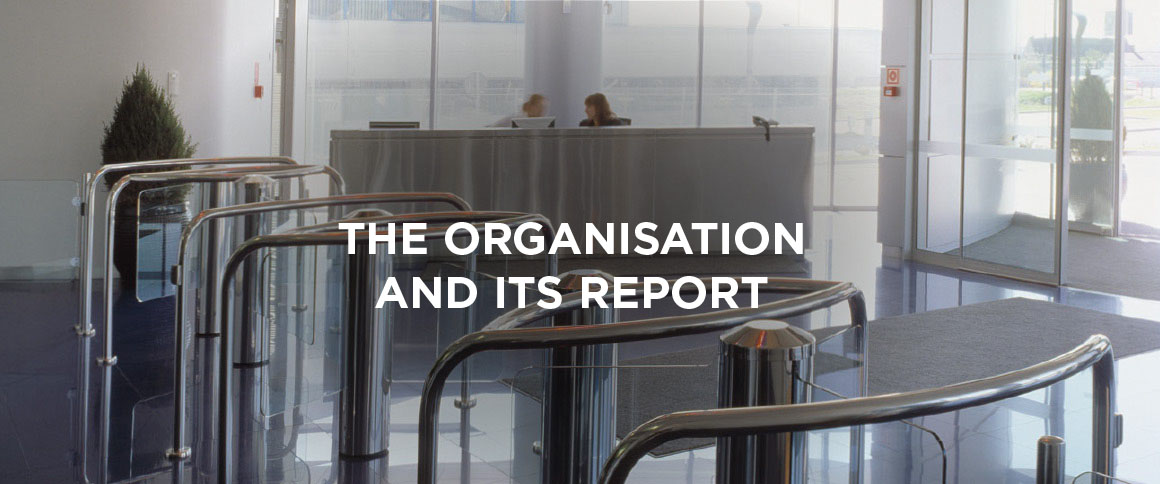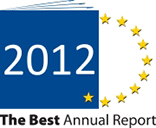

Grupa LOTOS S.A. - Integrated Annual Report 2012
Integrated Reporting
{GRI 3.1., 3.2., 3.3., 3.5., 3.9., 3.13.}
The Annual Report of the LOTOS Group for 2012 is an integrated report covering the organization’s operations in the financial year 2012, which coincides with the calendar year. The previous integrated annual report was published in April 2012.
In 2007-2009, we published separate reports on the financial and non-financial aspects of our activity. In 2010, the Company’s Board decided to integrate the reports for stakeholders presenting the organization’s management approach and performance across all areas of its activity, i.e. economic, social and environmental. This publication is our fourth integrated report.
The Grupa LOTOS Board’s intent is to enable stakeholders to make a comprehensive, measurable and objective assessment of our overall involvement in sustainable development through an integrated and reader-friendly presentation of our financial statements and non-financial reports for a given year. We follow the best communication practices applicable to public companies:
- For financial reporting, we adhere to the International Financial Reporting Standards (IFRS) as endorsed by the European Union, published and in effect as at December 31st 2012,
- For non-financial reporting, we adhere to the Sustainability Reporting Framework and Guidelines of the Global Reporting Initiative (G3.1 GRI, with the Oil and Gas Sector Supplement) and the United Nations Global Compact’s Principles. We are at Application Level A+* in the three-level GRI reporting system.
* The individual Application Levels were assigned letters from C (the lowest), to C+ (where a “+” is given if a report has been verified by an independent assurance body), B, B+, A, through to A+. The reporting criteria used for each level measure the extent to which the Guidelines and the GRI Reporting Framework have been applied.
For integrated reporting, there are currently no uniform, internationally recognised standards. In 2010, the Global Reporting Initiative and the Prince's Accounting for Sustainability Project established the International Integrated Reporting Committee (IIRC), whose aim is to establish an internationally recognised framework for integrated reporting. The IIRC believes that integrating financial analysis with analysis of the social, environmental and economic context of a company’s operations is a valuable source of information, allowing its stakeholders to assess its long-term profitability. 2012 research conducted together by the Black Sun agency and the IIRC revealed that integrated reporting allows better insight into how an organisation will generate future value. The integrated reporting model offers improved coherence in corporate communication with third parties and improved quality of the data collected. Those bound to benefit the most from the new reporting models include analysts and corporate reporting staff.
As we wait for the new reporting standard to emerge, we consistently strive to improve the adopted model, using best available practice in financial and non-financial reporting.
In our work on this Report we embraced the key principles of accuracy, materiality, completeness, comparability, balance and reliability. All data contained in this Report was collected in a reliable and responsible manner, and verified as being consistent with the facts.
The consolidated financial statements of the LOTOS Group included in this Report were audited by qualified auditors at Ernst & Young, pursuant to the provisions of Chapter 7 of the Polish Accountancy Act of September 29th 1994 (Dz.U. of 2009, No. 152, item 1223, as amended), and the Polish financial auditing standards issued by the National Council of Statutory Auditors (Krajowa Rada Biegłych Rewidentów).
To ensure an appropriate level of transparency and credibility, in 2011 the Board of Grupa LOTOS decided that third-party assurance of non-financial data included in the Annual Report should be provided by an independent body. Limited assurance provided in 2013 by PwC complied with the International Standard on Assurance Engagements (3000 ISAE, Assurance Engagements Other Than Audits or Reviews of Historical Financial Information). ISAE 3000 was issued by the International Federation of Accountants (IFAC). The standard is based on IFAC’s Code of Conduct and the International Standard of Quality Control (ISQC-1), and is used to provide assurance with respect to CSR reports. The Standard defines the key principles and procedures for assurance engagements, including “limited assurance” engagements.
The Board of Grupa LOTOS has resolved to publish annual implementation progress reports on the LOTOS Group's CSR strategy. The Annual Report for 2012 is our second report with independently verified CSR information, and we have made every effort to ensure the quality of the data collection process which is supported by the organization’s management systems.
Driven by environmental concerns, we are publishing this Report in electronic form only. This also serves the intention of providing readers with the most convenient range of solutions to making this publication a friendly tool, with which to perform their own analyses.
Part of this are the functional solutions embedded in the electronic format, which are updated regularly based on, for example, stakeholder opinion polls or the appraisal of traffic to the webpage featuring the Report. Readers can display selected numerical data by periods, GRI indicators, operating segments, etc. Information included in the Report is integrated with the contents of the Company’s website, which includes reports from previous years. Accessibility options such as Narration, a high-contrast mode and text zoom, have been added for people with disabilities, the elderly and the vision impaired. Environmental friendliness is ensured by an economical printout option, and there is also an option for readers to leave feedback.
Previous reports are available from www.lotos.pl/en. For contact details, refer to the “Useful information” section of this Report.

 E-mail
E-mail Facebook
Facebook Google+
Google+ Twitter
Twitter
